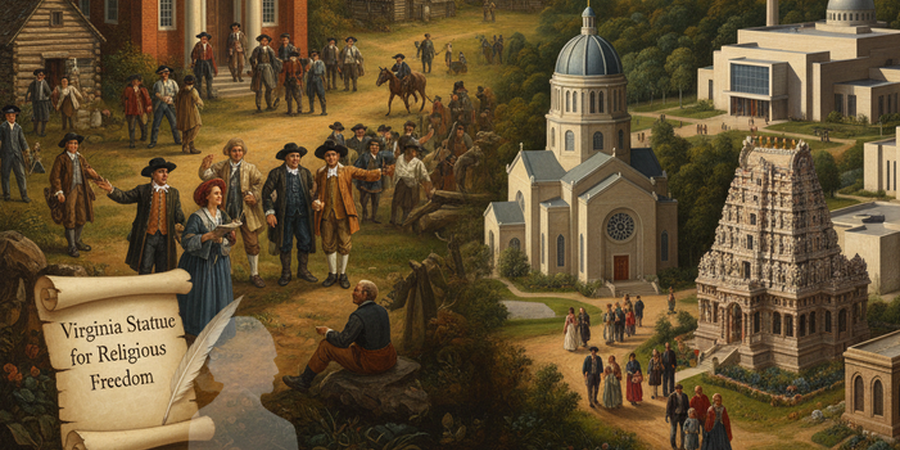VIRGINIA - Virginia, often referred to as the "Mother of Presidents" and a cornerstone of early American history, has a religious landscape deeply influenced by its colonial past. While the state was initially founded with a strong Anglican (Episcopalian) establishment, it has evolved over the centuries into a vibrant and diverse spiritual hub. Today, while numerous faiths are practiced, Christianity remains the most prevalent religion in Virginia, with Protestant denominations, particularly Evangelical and Mainline traditions, comprising the largest segment of believers.
A Colonial Beginning: The Anglican Establishment
Virginia's religious story begins with the Church of England. The Virginia Company, which founded Jamestown in 1607, brought Anglicanism as the official state religion.
- Established Church: For over 150 years, the Anglican Church (which became the Episcopal Church after the American Revolution) was a legally established institution, meaning it was supported by public taxes and held a privileged position. All citizens were required to attend its services and pay taxes to support its clergy.
- Early Religious Figures: Figures like Pocahontas, who converted to Christianity and was baptized Rebecca, represent some of the earliest religious narratives in the colony, though often through the lens of colonial expansion.
The Great Awakenings and Rising Diversity
The 18th and 19th centuries brought significant shifts. The First and Second Great Awakenings introduced powerful evangelical movements, leading to a surge in popularity for dissenting Protestant denominations.
- Growth of Baptists and Methodists: These revivalist movements resonated deeply with ordinary people, challenging the established Anglican order and leading to rapid growth among Baptists, Methodists, and Presbyterians. These groups championed religious freedom and often opposed the concept of a state-supported church.
- Jefferson and Religious Freedom: Virginia played a pivotal role in establishing religious liberty in the United States. Thomas Jefferson's Virginia Statute for Religious Freedom (1786) disestablished the Anglican Church and guaranteed freedom of religion for all, influencing the First Amendment to the U.S. Constitution.
The Modern Religious Landscape: Christianity Predominates
Today, Virginia's religious demographics reflect this rich history, coupled with modern migration patterns.
- Protestant Majority: Protestantism remains the dominant religious affiliation in Virginia. This includes:
- Evangelical Protestants: Groups like Southern Baptists, non-denominational Evangelicals, and various Pentecostal and Charismatic churches represent a significant and often growing segment, particularly in the more rural and southern parts of the state.
- Mainline Protestants: Denominations such as the United Methodist Church, the Episcopal Church, the Presbyterian Church (USA), and the Lutheran Church (ELCA) maintain strong presences, particularly in the northern Virginia suburbs and older urban centers.
- Catholicism: While not as historically dominant as in Maryland, Catholicism has a substantial and growing presence in Virginia, especially in the more populous northern Virginia region and other urban areas, driven by both historical communities and recent immigration.
- Other Christian Denominations: Various other Christian groups, including historically Black Protestant churches, also contribute to the state's Christian majority.
A Growing Tapestry of Other Faiths and the Unaffiliated
While Christianity is clearly the most popular, Virginia's demographics are increasingly diverse.
- Other Religions: Reflecting global migration and the state's proximity to Washington D.C., Virginia has growing communities of Muslims, Jews, Hindus, Buddhists, and followers of other world religions, particularly in Fairfax County and other parts of Northern Virginia.
- Religiously Unaffiliated: Consistent with national trends, a notable and increasing portion of Virginians identify as religiously unaffiliated (atheist, agnostic, or "nothing in particular").



